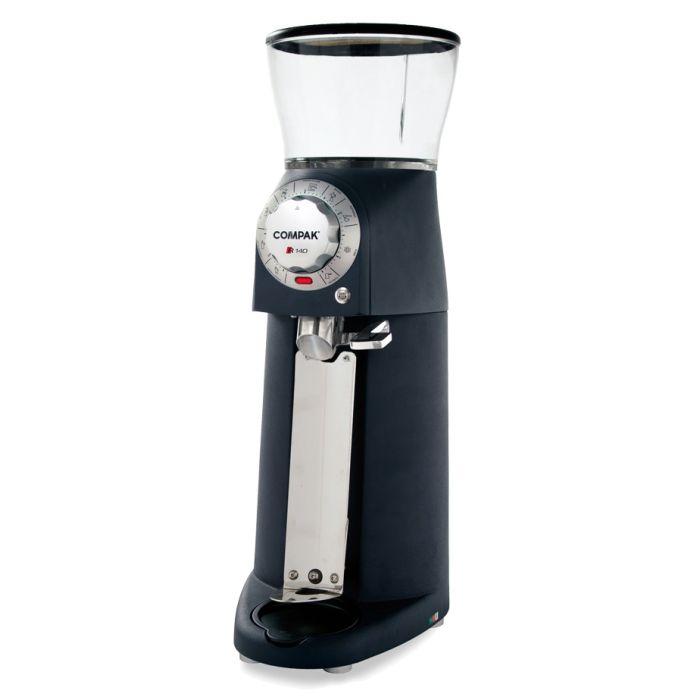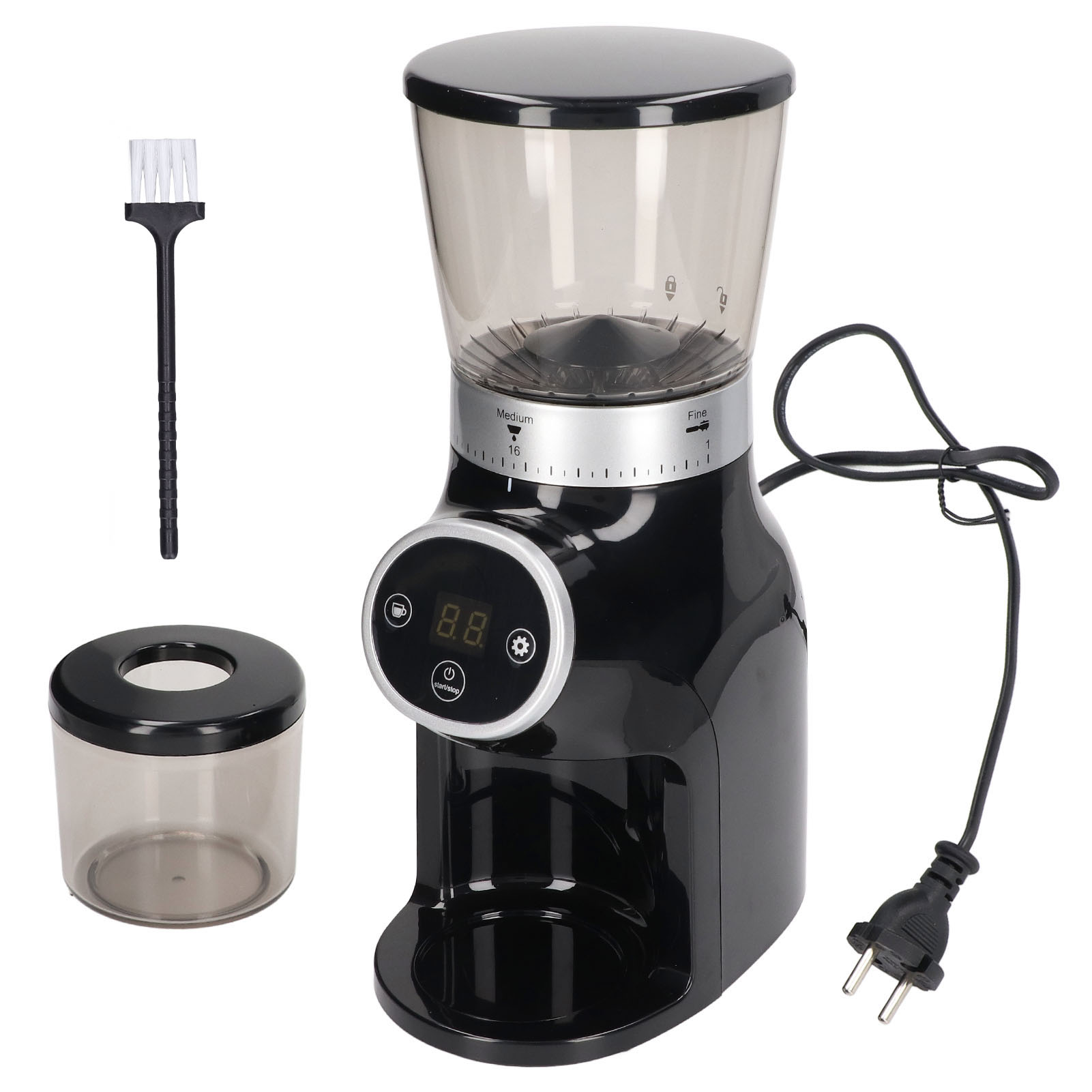Exactly How to Pick the Perfect Industrial Coffee Mill for Your Organization
Choosing the optimal commercial coffee mill for your company is a multifaceted choice that needs careful consideration of several critical elements. Furthermore, understanding the various kinds of grinders offered can substantially affect your operational efficiency.
Assess Your Grinding Demands
When selecting a commercial coffee grinder, one need to first evaluate their grinding demands to guarantee ideal performance and consistency. This preliminary examination involves recognizing the volume of coffee to be processed daily, along with the preferred grind dimension for numerous developing techniques. A high-capacity grinder might be necessary for businesses offering large quantities of coffee, while smaller procedures could discover a more compact design sufficient.
Furthermore, it is important to take into consideration the kinds of coffee beans being utilized, as various beans might require particular grinding techniques to accomplish the very best taste account. Oily beans might necessitate a mill designed to deal with such attributes without clumping or overheating.
An additional essential element is the called for grind consistency. Specialized coffee companies typically require exact grind dimensions to improve extraction and taste, making it crucial to choose a mill that can supply consistent results. Finally, assessing the readily available area and electrical needs will aid in selecting a mill that fits perfectly into your operational workflow. By completely assessing these aspects, businesses can make enlightened decisions that line up with their coffee grinding needs, eventually leading to a remarkable product and pleased consumers.
Understand Mill Types
Comprehending the numerous sorts of industrial coffee grinders is critical for making an informed choice that fulfills specific operational requirements. There are mostly 2 categories of grinders: blade grinders and burr grinders.
Blade grinders make use of rotating blades to chop the coffee beans, leading to an irregular work dimension - Industrial Coffee Grinder. While they might be extra affordable, they are typically not ideal for business applications where accuracy is vital
On the various other hand, burr mills give an extra uniform grind by crushing the beans between two surface areas. They can be additional classified into flat burr and cone-shaped burr grinders. Flat burr mills supply a regular work dimension and are commonly preferred for espresso preparation, while conical burr mills are functional and can manage a variety of brew methods, from espresso to French press.
When picking a mill, think about the certain requirements of your company, including wanted work consistency, production quantity, and the sorts of coffee beverages you plan to offer - Industrial Coffee Grinder. Each mill kind has its advantages and limitations, so comprehending these nuances makes it possible for notified decision-making that aligns with functional objectives
Evaluate Grind Size Uniformity
Accomplishing grind dimension uniformity is necessary for creating top quality coffee, as variations in fragment dimension can dramatically affect extraction and flavor. When picking a commercial coffee grinder, it is crucial to review exactly how well the maker keeps uniformity in grind dimension throughout different batches. Irregular grind sizes can result in uneven removal, causing a mug that might taste overly bitter or weak.
To assess work size consistency, consider grinders with attributes such as flexible grind settings and high-quality burrs. Burr mills, particularly, master generating consistent bit sizes contrasted to blade mills. The material and form of the burrs play an important function, with stainless-steel and ceramic alternatives offering resilience and accuracy.

Take Into Consideration Manufacturing Capacity
In the hectic globe of coffee manufacturing, considering production capacity is vital for businesses aiming to satisfy need without giving up top quality. The manufacturing ability of an industrial coffee grinder directly influences a company's ability to satisfy orders effectively, handle stock, and reply to changing market patterns.
When examining production capability, it is vital to examine the grinder's output rate, typically measured in extra pounds per hour. This dimension must line up with your service's forecasted sales volume and growth targets. A café with a high turn over may require a mill that can refine a number of hundred pounds daily, while a smaller sized procedure may suffice with a reduced capability model.
In addition, think about the type of coffee being refined. Various beans and blends may influence grinding speed and efficiency, requiring a grinder qualified of dealing more info here with diverse manufacturing needs. It's additionally you could try this out worth considering the grinder's capacity to maintain regular high quality under high outcome problems, as any variations can impact the last product.
Ultimately, choosing a mill that matches your service's production capability will certainly ensure you continue to be competitive and receptive to customer assumptions.

Spending Plan and Upkeep Aspects
When evaluating the right commercial coffee grinder, spending plan and maintenance factors play a considerable duty in the general decision-making process,. A preliminary investment in a premium grinder can yield lasting advantages, yet it's essential to establish a clear budget plan that straightens with your company's functional requirements. Take into consideration both the purchase cost and possible functional costs, such as energy consumption and replacement components.
Industrial coffee mills call for normal maintenance to make certain optimum efficiency and durability. Assess the producer's recommendations for upkeep, consisting of cleansing routines and parts substitute, as these will certainly impact long-term functional expenses.

Purchasing a grinder that is durable yet very easy to preserve can conserve money in time. While lower-priced alternatives might be tempting, they might sustain higher upkeep expenses and reduced performance. Eventually, balancing preliminary costs with lasting maintenance and functional performance will lead you to the finest choice for your business's coffee grinding needs.
Verdict
Choosing the perfect commercial coffee mill requires a comprehensive evaluation of grinding requirements, grinder kinds, grind dimension consistency, manufacturing ability, and monetary considerations. By focusing on these variables, services can make sure the purchase of a dependable, efficient mill that meets details operational needs. A well-chosen grinder not just boosts the high quality of the coffee generated but also adds to the overall success and productivity of the business. Lasting efficiency and maintenance convenience should stay central to the decision-making process.
Specialty coffee services commonly require specific work dimensions to boost removal and taste, making it crucial to select a mill that can provide uniform results. Apartment burr mills supply a regular work size and are usually preferred for coffee preparation, while cone-shaped burr grinders are versatile and can handle a range of mixture approaches, from coffee to French press.
When choosing an industrial coffee grinder, it is essential to evaluate how well the machine keeps read review harmony in work dimension across various batches. Burr grinders, in particular, stand out in creating consistent fragment sizes compared to blade mills.Selecting the optimal industrial coffee grinder requires a complete evaluation of grinding demands, mill types, grind size consistency, production capacity, and financial factors to consider.
Comments on “Industrial Coffee Grinder: Finding the Perfect One for Your Business”